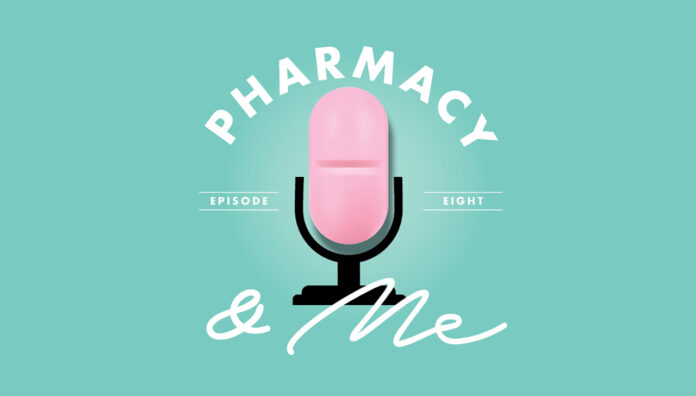Missed an episode of Pharmacy & Me? Catch up here.
When an injury cut short his career in construction, Sean Richardson MPS threw himself into pharmacy study and discovered a newfound passion for healthcare.
Now a locum in Mount Isa, Queensland, Sean is always looking for the next opportunity, whether it’s implementing an opioid substitution program or finding ways to assist palliative care patients.
In this episode of Pharmacy & Me, Sean speaks with hosts Peter Guthrey and Hannah Knowles about his experience as a mature-aged student who didn’t finish high school, working as a locum (and not wanting to leave) and knowing your worth as a pharmacist.
Listen to the episode below or find it on Spotify, Apple Podcasts and Google Podcasts.
‘The great pharmacists I have met and worked with are all accountable – no one passes the buck.’
Sean Richardson MPS
Follow the timestamps to jump to the topics below:
- [00:01:25] From construction to pharmacy
- [00:07:04] Getting involved in PSA’s ECP Facebook page
- [00:08:38] Reducing stigma
- [00:12:09] Implementing an opioid substitution program
- [00:16:38] Being accountable
- [00:18:10] Finding your place in pharmacy
- [00:19:25] Every conversation is an opportunity
- [00:23:14] Remuneration
- [00:27:03] Sean’s best advice
Resources:
- PSA ECP Facebook group: www.facebook.com/groups/110221472825/
- Pharmacists in 2023: roles and remuneration report: www.psa.org.au/advocacy/working-for-our-profession/pharmacists-in-2023-roles-and-remuneration/
- Australian Pharmacist HIV CPD: https://www.australianpharmacist.com.au/?s=HIV
Sean [00:00:00] If I was a student coming out, I’m going to do exactly what I did again, jump as far to the deep end as I can, find as many opportunities that I haven’t learnt or know about or understand yet and learn them, because it’s going to be just a matter of time before I have to anyway. And knowing my opportunities, I can look at the next job advertisement, look at it and go, oh yes, I know how to do all those things because I’ve already been in an environment that expected it of me.
Hannah [00:00:32] From the Pharmaceutical Society of Australia, hello, and welcome to Pharmacy and Me, the podcast that explores how pharmacists do the extraordinary things they do. I’m Hannah Knowles, a senior pharmacist at the Royal Brisbane and Women’s Hospital.
Peter [00:00:47] And I’m Peter Guthrey from PSA and a community pharmacist at a 24/7 pharmacy in Melbourne. Each episode we speak to a pharmacist doing outstanding work about the highs and lows of their career. We unpack what they’ve learnt and how you can put their experience into your practice.
Hannah [00:01:2] After transitioning from a career in construction to pharmacy, Sean became a registered pharmacist last year, currently working as a locum in Queensland. He is passionate about being a community pharmacist and is always looking for the next opportunity. Thanks for coming on, Sean.
Sean [00:01:18] Thanks for having me.
Peter [00:01:19] So, Sean, tell us a bit about yourself, what prompted you to swap your construction role for a role in community pharmacy?
Sean [00:01:25] I didn’t finish school, school wasn’t really for me, my kind of environment. And basically, I moved into like a labour industry because that’s pretty much the first step you can kind of go into when you really don’t have any qualifications or any kind of experience. And I spent the majority of like 4 or 5 years in construction until I slipped two discs in my back. And that prompted a rehabilitation role. Yeah that’s not fun. My partner at the time, she recommended me to go to uni after I kind of recovered from my injury. And so, quite hesitant, a bit proud, I went to an open day at the UniSA anyway. And it was funny enough I got convinced to undertake a role through the TAFE SA guy at the University Open Day. And I basically did a foundation studies course which kind of trained me up to doing study and enabled me to kind of enter into a university bachelor with the achievement of my GPA that I got through that course so I chose pharmacy, that was basically just a big challenge. I’d done so well in that foundation studies course that I was like, well, why not, just shoot high. And I landed very hard. It was a bit of a wake up call. I didn’t know any chemistry. I didn’t know anything, actually. But yes, looking back now, a great decision.
Peter [00:02:43] And what do you mean by wake up call, so you thought you’d land with a bit of a thud? What was that moment of terror where it’s like, oh, what if I just got myself in for?
Sean [00:02:51] Probably like all the students around you are going, oh yeah, nah, this is good. Finished this in Year 12, this is cake and just thinking to myself, organic chemistry; this is what all the terrifying thoughts were all about. And I just felt very in the dark about what I was getting myself into. You apply yourself as best you can in the degree setting and like the support that I ended up getting in the degree was like, I am where I am for the result of that. A lot of it was hard work so my first couple of years at uni, I was like scraping that barrel. It was the most embarrassing P1 P2. I failed a couple of subjects. Pharmacokinetics and dynamics was just like a nightmare, twice, I got up to speed in third and fourth year and I felt more relaxed and comfortable in those years.
Peter [00:03:41] You’ve been to this careers day, why was pharmacy the choice? You said you aimed high and got into pharmacy. Was it a passionate first study or was it something that took a while to grow?
Sean [00:03:50] Well, definitely wasn’t the first kind of passionate thing, I guess. The passion came later, like I’ve got in the first door, excited. I’ve been to Officeworks, decked myself out with all the things I didn’t realise I’d need and I was overwhelmed. I was 100% overwhelmed but very eager to kind of like, see what I could do. I do even remember repeating organic chemistry, the module there because it was, I was told that it was so important when it came to induction resonance of like chemical structures, which I remember absolutely nothing about still. So it was paramount to knowing that at that early stage, so I took the advice and instead of taking a P1 with a scrape through on a pass, I repeated it and got a credit and it was like I just needed a little bit longer to kind of get those fundamentals down. And yes, it was just the passion came later, but I definitely found a difference between, you know, being in a cohort of students at a university and the majority view of the industry and then the networking with, you know, conferences with the PSA or with like NAPSA and just really kind of extending yourself out to seeing what it looks like from people who are already in the industry and like no one in pharmacy, as a student, knows pharmacy yet. Yet so many are so comfortable in leaving and thinking that it’s not for them. It’s like you haven’t even got started yet. And so, you know, you see the reduction of students drop out in the first couple of years and it’s like, yes, okay, you’re doing the rote learning side of things. These are the facts. These are the foundations for the information you’re going to use to justify your therapeutics and your arguments. And so they leave in the first couple of years when it gets a bit tougher. And it’s like, well, for me, it got even easier to the latter part of the years because I got to use my strengths, which was my interpersonal and conversional skills.
Hannah [00:05:31] Absolutely and you touched there on students leaving the profession. We also see that in early career pharmacists. And how do you feel that the negativity around the profession from other people impacted you as a student and now as an early career pharmacist?
Sean [00:05:46] It is disappointing to have people in our industry on forums, you know, knocking it off in the same place that kids are trying to be extremely optimistic, extremely initiative based. And it’s like, for me, it comes down to like their perspective and why they have that perspective, is your perspective that way because you’re having a bad time and you know, your circumstances aren’t too flashy? The first step comes into kind of reflecting on yourself and going, all right, so I’m in this position at this pharmacy on this pay rate. I know this amount of skills. What have I done with myself in this period of time? And so for me, I look at it like, well, to learn a skill, you need to have an experience. To have an experience you need to find the right environment. To have the right environment, well you need to go find that and that’s your responsibility. And then all the challenges will naturally present themselves as you go. You’re going to have to learn on the spot in all those cases, but methadone programmes weren’t done in the first pharmacy I worked at or the second or the third, but in one of the country rural pharmacy ones, they were. And so I had to learn straight away. I’m the only locum; I’m the only pharmacist. You’re going to learn today how methadone programmes work and then you’re going to meet methadone patients and you’re going to set an example for your team. It all relies on your choices to get outside of the current ones or to welcome those new ones that you don’t like so much.
Hannah [00:07:04] So I think the forum you’re alluding to is the PSA’s Early Career Pharmacist Facebook page, and you’re someone who is quite active in contributing to the page, what do you get out of the page professionally?
Sean [00:07:16] You’ve got to look at it as a whole and like 95% of that is like great content. The little reminders from the PSA representatives who moderate the page, the updates on things like the COVID legislation updates was so handy, just flicking through Facebook, bang, there is your update. The freedom to ask any kind of question, usually, in most cases, without catching flak for it is again an opportunity to be able to voice your opinion, to voice your troubles. I think the page does a good job.
Peter [00:07:46] And as one of the authors of the PSA updates on the page, it’s really nice to know that those posts are being read and appreciated, and I know that when I was writing those posts, the mentality that I had was if I’m a pharmacist in a pharmacy or in a hospital today, what do I really need to know from these updates because there was information flying thick and fast.
Hannah [00:08:04] And as a consumer Pete, I really enjoyed the fact that all of the COVID updates were broken down into states. And so you could actually identify quite quickly what information was for you and with things rapidly changing it was very helpful.
Peter [00:08:17] I certainly watched many hundreds of press conferences, sometimes not all at the same time to try and get that so I’m really glad that that’s been reflected. But speaking of the ECP page, Sean, a while ago, you authored a really quite compelling post about how someone living with HIV changed your perception of stigma. I was quite taken with that. Is it something that you can share with their listeners today?
Sean [00:08:38] Yes, sure. I was in third year, fourth year, and I think we’d just done HIV modules or something like that and probably the last six months or something and it’s like, it’s complex. It really is a complex thing, and it’s changing so rapidly and quickly. So yes, I was in a TerryWhite pharmacy down in Adelaide and I had a gentleman come in and like, I recognised the medication straight away. He was a regular basically as I was like just handing out, just doing the normal pharmacy assistant type thing. I basically noticed that there was a tattoo on his arm; it’s like a biohazard on his arm. It’s really evident like it was like that was not to be hidden. It was clearly like a statement. And I was curious. I was like, I know what this medicine is for, is that reference to that, he was like, yes, and I said, like, can you tell me why like, why you’re presenting it like that? And he basically explained to me, he’s like, well, look, I’ve adjusted to the fact that like, I’ve got this and I’ve had it for a number of years now. And he went through a little bit of his life story. Briefly and basically he said, like he looked past the negativity of the situation and looked at it more of an opportunistic situation to educate people about his situation. And so when anyone asks about it, he’s happy to discuss with them. He likes to stay up to date the research, and it was probably at that point, like as I’d finished the conversation with him, he put his hand out to shake and like, I just naturally shook his hand but I can honestly say that like before I’d met someone who was actually HIV positive like I was apprehensive, like there was that part of me that was like, yes, I know the data and I know what I was taught at uni, but like, this is the real deal. And so after, I shook his hand and stuff, it just kind of clicked. It was just kind of like such a simple action was so important in my psyche to basically accepting that, like I actually do trust this, like he is adequately adherent on his medication, his viral load is not transmissible. I can shake this gentleman’s hand. I can chat with him in a close proximity. I don’t feel uncomfortable about that I actually trust the data and I trust it with my life, like as a health professional, I trust the information that is given like, I have to do it. And it’s not like a blind trust, because we’ve got the other health professionals on the other end doing the research. And so, what that situation there did for me is extended into a passion for working in stigmatised areas like methadone programmes, Suboxone programme, needle syringe programme, and things like that.
Peter [00:10:59] Trusting the science is really, really important, we’ve seen that play out through the pandemic. And you also spoke there about how important being up-to-date with HIV information is and the November and December edition of Australian Pharmacist this year has some really good CPD modules. I know, I’ve learnt a bit from them. I hope others who have access to AP can also get it out of them too.
Hannah [00:11:19] It’s definitely something I’ll be reading, Pete, thanks for that, Sean, what role do we have as pharmacists in reducing the stigma felt by our patients?
Sean [00:11:28] From the way that I see it is like as a pharmacist, your pharmacy is your house, it is a business, but like you try and control the interactions in the most positive way that you can mentally, physically, don’t hold down someone or anything, just more that when they come in, like you can read body language like we’re human beings, like we can see how someone feels on their expressions, and you can kind of tease your way through a conversation. You can know exactly how someone’s feeling if you get enough time with them, and it can be a matter of seconds to like 20 or 30 seconds. So when someone comes into the pharmacy and you can see they’re clearly distressed or the discomfort, you need to prioritise that like that’s the first thing you need to do.
Hannah [00:12:09] And I know that you’ve set up an opioid substitution programme in one of your pharmacies, what sparked that and how did you go about implementing that?
Sean [00:12:19] I guess having worked with it in a rural pharmacy before, I saw how crucial that role was there, and I’m glad that pharmacy also had it. But when I came out to here at Mount Isa, I came into the pharmacy and you adjust as you come into a new setting. And one of those things was like opioid. I was like, I would love to do a service here and be a spot for it because I’d love to train my staff to manage to get their mannerisms just right to be able to welcome those kind of personalities into the pharmacy. And it’s something that I think, like all pharmacies should be able to like offer, but like every pharmacy is unique. Like, you can’t assume every service is capable in every pharmacy, but I felt like, you know, we’re a smaller store. We can be on a more personal basis and this is perfect. And the owner of the store has been so flexible and so amazing at the options that I’ve been able to implement here that it just, it was just very just a fantastic outcome really. So I was in chats with the Mount Isa hospital briefly and they said that they would love to, you know, they’ve got patients, who are coming in on a Friday and I actually work Monday to Friday. And so they’d love someone to provide them the methadone programme on a Saturday. And I was like, yes, I work a Saturday. Let me see what I can do, got contact with ATOD’s got in contact with Sigma and Modius to set up the FDA software. I was so excited because I hadn’t used FDA software before, so I really wanted to implement that even though I had only had a couple of customers. And I was able to find a really streamlined, effective way to provide the service. And so the first time as the teething, you meet the patient, you got everything all in order as much as you can in the paperwork side of things and then you meet them and they’re the loveliest person. They’re more lovely than 95% of my customers that come in and it’s like, it sucks because that person’s got a stigma. And so she’s come in for like four weeks now, and every single interaction has been absolutely lovely. The staff enjoy having her come in and it’s just, yes, it just, it was a bit of time to put together, but once it was together, it’s there, it’s working.
Hannah [00:14:16] It’s a really nice example of helping patients access health care. And you know, in the hospitals, we have quite rigid systems and that flexibility of opening up other care providers can make a real impact on people.
Sean [00:14:28] I just probably add to that, it’s like every facility of health, they are grinding, so the ED department, who’s trying to take care of the patients in a brief sense, the pharmacy over in the Mount Isa hospital absolutely work it, like I get phone calls from them all the time about getting their patients on onto dosage administration aids. And it’s like that’s not your job per se, like you’re that’s an extension of your job where you are trying to provide care outside of your current workplace of employment. So it’s like they care to the point where they’re trying to liaise with the community pharmacies to connect the dots from the hospital setting, that prompt effort is much appreciated from my end because although we’re on the phones all the time, if it wasn’t for that situation, the customer would never get to the web stack and it’s like everyone just does that little bit extra in every single situation that helps the ball keep moving. And although, which kind of sucks, the patients don’t always see that hard work in the background. We know the work is being done.
Peter [00:15:28] I still have vivid memories of my intern year working in hospital that when you did make that reach out to the community pharmacies that you were working with, it made all the difference for the patients and they were far less likely to represent as a return admission.
Sean [00:15:41] I agree, I only had a brief stay in the Flinders hospital for the placement there. But every time I had to call a pharmacy and discuss medication histories, or webster histories, the receptiveness and the prioritisation from that pharmacy in the community setting, knowing full well that they are like flat out at all times is just really fantastic. The timeliness that a lot of pharmacists make just to get that bit of information across a quick email, a quick med summary, just that bridge. It just confirms and maintains that kind of communication network and without it, without pharmacists doing that, like everything falls to pieces.
Hannah [00:16:18] Yes, exactly and we know that that bridge is so important and that transitions of care are one of the highest risk places for people to have medication misadventure. So if the risk is there that means us as pharmacists really need to step up. Sean, over your years working as a pharmacist, what are the three most important things that you’ve learnt?
Sean [00:16:38] Be accountable is probably the hardest thing. Like, that’s the hardest part of the job is accountability and responsibility, acknowledging that you are accountable and you are responsible is what makes you a great pharmacist. The great ones that I have met and interacted with and worked with are all accountable and no one passes the buck. The pharmacist just takes on their shoulders whatever the situation is, they walk straight into the fire. They go, yes, what can I do to fix it? Troubleshoot it, problem solve it, mediate it that’s probably the first thing that’s really only come to mind is the accountability. The other one would be advice, where you get your advice from is dependent completely on who you ask. And if you’re asking the advice of people who aren’t in places you want to be, you probably shouldn’t ask those people. If you want to be in high pressure environments or hospital environments or rural environments or high remuneration environments, ask someone who is there like someone who’s there because they will give you the literally like, they’ll give you the exact answer you’re asking to find out. And sometimes the advice that you need to actually get is the one you need to give yourself because you’re not going to always find the right advice for the right person to give you the direction that you probably want to go in yourself.
Hannah [00:17:45] And tapping on to that with advice, making sure that you actually assess what people are telling you because like you said, Sean, that just because it was right for someone else doesn’t mean it’s correct for you.
Peter [00:17:55] And that actually raises a really good point. Sean, earlier this year, you told Australian Pharmacist that pharmacy does cater to lots of different personality types and that you need to discover the role that suits you the best. Do you feel like, you know at this stage of your career, what role suits you the best?
Sean [00:18:10] I’m happy to say this one is, ah, this one seems pretty good, knowing that the first pharmacy you are working in is not a staple example of what pharmacy is, that’s the first thing. The second one is like take a moment to reflect on the kind of person that you think you honestly are like your personality traits what you want to do in five years. If you think the projection of your career is going to follow the timeline of what Fair Work says as an ECP, experienced pharmacist, pharmacist in charge, pharmacist manager, you know, eight years later, you’re missing the point here. There are literally 1000 boxes in pharmacy. So if I was a student coming out, I’m going to do exactly what I did again, jump as far to the deep end as I can, find as many opportunities that I haven’t learnt or know about or understand yet and learn them because it’s going to be just a matter of time before I have to anyway. And knowing my opportunities, I can look at the next job advertisement, look at it and go, oh yes, I know how to do all those things because I’ve already been in an environment that expected it of me. And so, I’m not too concerned about, you know, where my career goes next because like, I feel like I’m on a rocket already, it’s just this year has been unreal, like, absolutely unreal.
Peter [00:19:22] What’s been so amazing about 2021 for you?
Sean [00:19:25] I put all my stuff in a trailer and I tried to get it from Adelaide to Mackay because I’d decided to move to Mackay, only to get stuck with COVID rules and get stuck in Adelaide and go rural in Adelaide to get back up to Mackay. To then go to Mount Isa anyway and while I was doing that, I bought a house, which I’ve slept in for about a week or two and now I’m still in Mount Isa and it’s in Mackay the more questions that I asked and the more responsibilities that I asked for, the more doors are just naturally opened up and I’m going on a tangent. So for those listening like I am so sorry but I was chatting to a stranger, a clinical nurse at the Mount Isa Hospital and we just got briefly chatting about the fact that nursing homes up in Queensland have this project, called the SPACE Project, it is about palliative care, and there’s funding going into the Space Project. And I was like, oh, I’d love to be a part of that. And then she said, oh, we’ve got people coming in to Mount Isa at so-and-so time like, you know, we’d love to have you on board with that. And then that leant into discussing with the, you know, the chief officer of the nursing home that we also supply for and she’s like, oh, you know about the SPACE programme and it’s like, well, like briefly but I’ve had to look into it and I see where the funding is going. And the idea is to support the palliative care process and get things timely because time is the issue here, it is the priority. And I was like; I would love to see if I can fix up some holes in any of those processes because we communicate with the nursing home on a daily basis. Everything just led into an opportunity and people ask about how you network and who do you talk to and it all starts in the pharmacy. I said every person that comes into your pharmacy is an opportunity. The person that walks in the door has a background or life experience in her own or their own industry. You know, you never get to know you get across a doctor or nurse or a business owner, and everyone’s got a story and a relation, but they’re in your pharmacy right now. Take an extra five to 20 seconds and get to kind of know the person in front of you. And you’ll be really surprised about how valuable that five or 10 seconds is.
Hannah [00:21:21] So, Sean, when you’re in a busy pharmacy, do you have any tips for people for opening up a conversation from just that transaction based into opportunities?
Sean [00:21:30] Before you get that stage, you’ve got to have your processes in order. You have so much information about an individual in front of you. Like as soon as they walk in the door, they’re going to be wearing a certain type of clothing, in a certain type of age bracket, ethnicity, gender, their medications are in front of you. You have a plethora of information that you can tap into. There are just so many opportunities for chats, like your interaction as a pharmacist doesn’t have to be counselling on every single thing and a conversation can give you counselling opportunities anyway. So instead of focusing on going, here are the three points I want to have a chat with you about briefly, talk to the person, just talk to them.
Hannah [00:22:05] And do you remember the first time in your pharmacy career that you felt that you really made a difference?
Sean [00:22:10] I think the difference comes at the end of the day. I guess I get pretty overwhelmed with the day’s happenings like you are engaged at 110%, whether you’re overseeing an intern or whether you’re dispensing or some software issues or you’re dealing with patients at the desk, the list goes on. I guess it’s more so you get to the end of the day and like knowing that you’ve done all those processes in the day, that’s the win. You get little wins. I recently, just like we finished work on Saturday and we were waiting on this order in liquid to come in for this lady. I’ve never met her before. And we had delays on our deliveries, and I just really needed to get that to her. She’s not doing too good. And so, you know, as soon as I finished work, gave her a buzz on the phone, shot over to her place and just, you know, handed her over the fence like, she’s so thankful. Like, if there was nothing in my day that had made me feel good on the inside, just handing a bottle over the fence after buzzing two minutes down the road to this lady, that did the job. It is so easy to find inner satisfaction in a job role, if you want to have inner satisfaction in the job role.
Hannah [00:23:14] Something that we’re all quite passionate about is fair remuneration for community pharmacists, in your eyes, what needs to happen to improve wages for pharmacists in the future?
Sean [00:23:25] Pharmacists need to know their value because not every pharmacist in every setting is the same. You can’t expect a pharmacist, who is maybe like fresh out or wants to just be a dispensary or doesn’t want to go rural or doesn’t want to dot dot dot. They understand that like there’s going to be many pharmacies applying for that job. So if you’re a person, look at your own wage, I would suggest look at what options are available outside of where you currently are. Or look at what the skills are required to have to be able to access that kind of higher remuneration. Now there are quick ways to earning larger money, that’s going locuming. You can go rural. The money is better, it is, but your responsibility is way higher, too. Like, you can’t just lean on the pharmacist next to you or the owner. You can’t hand over anything. It is, it’s on you. The next thing is currently remuneration approaches, like the PSA is trying like remuneration 2023; they brought that out. The area that I think that we’re going to find the most kind of like benefit is the Medicare, claiming to Medicare when pharmacists will hopefully soon pharmacists can claim on Medicare for their consultations and stuff. I believe that’s the area but as for the current area like it is, I think it’s hard. A good owner will know the value of a good pharmacist. And I’ve worked with some amazing owners and they do. They know the value of a great pharmacist and they hold on to them. Those pharmacies that get a little bit extra longer, they stay around a couple extra minutes more, like they are crucial.
Peter [00:24:48] You’ve only slept for a week in your house in Mackay and you’re currently in Mount Isa, where do you see is next for you?
Sean [00:24:54] I don’t know, like, I’m kind of enjoying it up here. I surprised myself, really, I decided to really invest in this pharmacy. I met the team. I saw what I thought needed to be done. I saw some sort of a project opportunity in some areas. And I trialed a couple of theories and errors, and I found myself thoroughly enjoying my job. I just kind of gave it a lot more than I expected to, and the community has kind of received me really well. The owners received me really well. The staff are fantastic. There are 17, 18, 19, 20 year old staff members in this pharmacy and I have watched over the last two or three months that I’ve been here and thoroughly grow from just assistants in most cases to actually like clinical health professionals. It’s their approach to the care that they have and going that extra mile for the customers. And they’re more attentive to some customers that I’ve seen and a lot of other places, it’s just, it’s really satisfying to watch your team grow. If you’re doubting whether your pharmacist is capable of achieving better service or better profit results, or just as a general, better operation, have a look at how much you’re investing into your team. As soon as I started giving responsibility to my younger members and my other MIC members, this changed, like their responsibility was I can double win because their responsibility turned them into being confident within themselves and capable. It was no longer turn to the pharmacist for every single thing that they need to do and just really enabling my team has paid off dividends. And I think that was the best decision I made and because I’ve done that now and I’m seeing them grow, it’s like, I kind of don’t want to go anywhere just yet and I’m just so thankful for the last 12 months lead up with all the opportunities that I’ve had, well actually five years really like it all started off in a little TerryWhite Pharmacy in Windale with like an exceptional owner that I now look at and go, man, those processes in that pharmacy are literally 95% of the ones I use up here. And I didn’t know how good I had until I went to a pharmacy that did not have it. It’s hard, but I can’t complain, yes, where I should be right now, definitely.
Hannah [00:27:03] That’s fantastic, Sean and unfortunately, we’re now looking at having to wrap up the interview and there are a couple of questions we like to end on with all our guests. So what’s the best piece of advice you’ve been given that’s helped in your career?
Sean [00:27:16] Taking any advice from the right people and the right people to yourself at the time and people that are in a place that you want to be and you’re not going to find those people to give you that advice next to you necessarily, if you want to know what it’s like to be an owner, ask an owner. The other thing would be, listen to those who are encouraging you to pursue the ideas and goals you have to listen to and the other ones, don’t. It’s irrelevant to the ones who don’t think you can do it because they’re not going to be there when you do. And the third one is if you can’t follow the advice, give it to yourself. Just give yourself the advice; you know you need to do the thing you want to do. Don’t wait for someone to tell you to do it, just do it.
Peter [00:27:54] And I think in that way you also answered my question, which is the top three tips for other pharmacists and seeking out the right people and getting the best advice from them. I think really fittingly rounds the discussion today out.
Hannah [00:28:05] Thanks so much for coming on and chatting to us, Sean. It’s been a really great conversation.
Sean [00:28:09] I really appreciate having the opportunity. Thank you very much.
Peter [00:28:012] And thanks to everyone for listening. You can check out the show notes for links to everything we’ve spoken about today. And don’t forget to subscribe to get episodes as soon as they are released. If you’d like to learn more about PSA Pharmacists in 2023 Roles and Remuneration Report, head to the PSA website.



 Pharmacists have always prescribed, but they have the potential to prescribe much more
Pharmacists have always prescribed, but they have the potential to prescribe much more



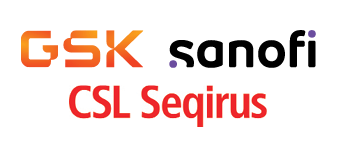 Sponsorship information
Sponsorship information
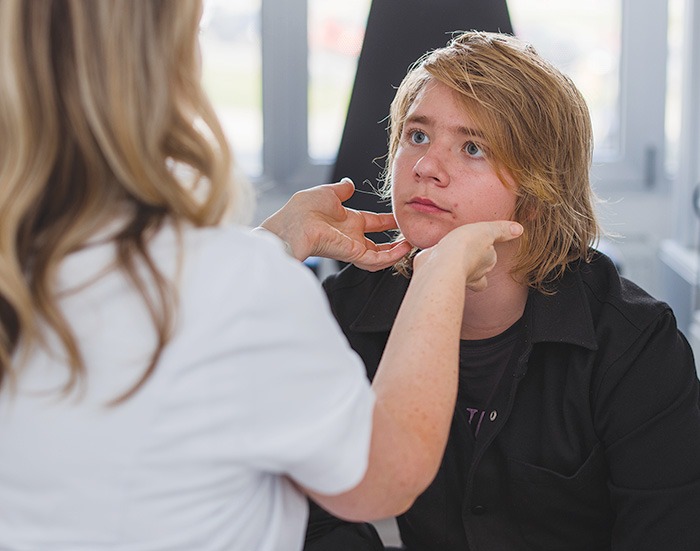
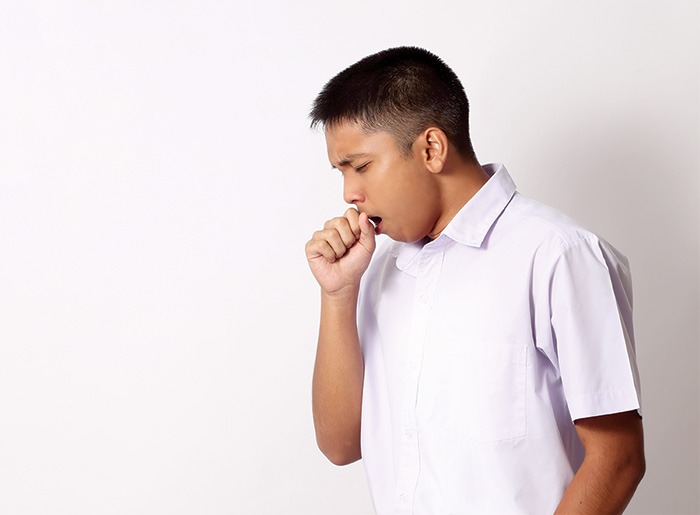
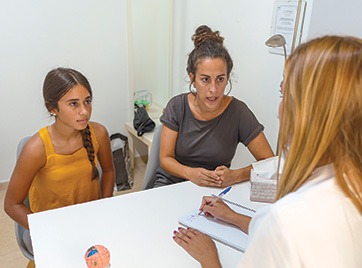 Talking to patients who have questions
Talking to patients who have questions